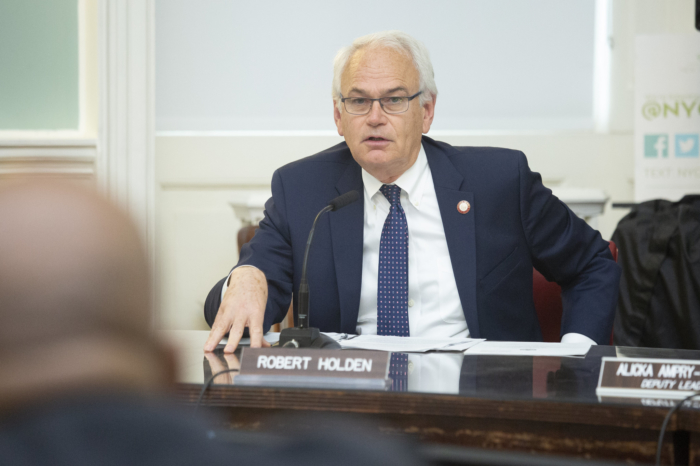BY COUNCILMEMBER JAMES SANDERS
Superstorm Sandy was the worst natural disaster to hit the tri-state area in years. In its wake it left a trail of devastation that stretched from Montauk to Rockaway, upending trees, power lines, and lives in the process. More than 100 homes burned to the ground as the result of a fire, sparked when salt water hit an electrical box in Breezy Point. Staten Island was literally turned on its head, and parts of Brooklyn, Nassau, Suffolk, and of course, New Jersey, will take years to rebuild.
I have always worried that in the wake of a Katrina-like event, my 31st Council District would turn into New York City’s Lower 9th Ward. Throughout my district, we saw major flooding and the loss of homes. We saw downed trees and power lines that destroyed houses and cars. The famous and historic Rockaway bungalows were devastated. Some homeowners in Rosedale dealt with more than five feet of water in basements that crept up to first floors.
For all the physical devastation wrought by Sandy, the true crisis came after the storm, when hundreds of thousands of customers of the Long Island Power Authority (LIPA) and Con Edison were without power, many for over three weeks. As of this writing, more than 300 LIPA customers were still without power, nearly a month after the storm. The loss of power created a crisis larger and deeper than was truly necessary, and caused a panic that affected everything from gas prices to the availability of food. Temperatures dropped and a snow storm hit, creating an even bleaker situation for tens of thousands who were still in the dark.
One of the most shocking and egregious aspects of Hurricane Katrina was how quickly government abandoned their constituents. Elected officials tasked with the responsibility of leadership, who were supposed to serve and meet the needs of their citizens, were the first ones to leave New Orleans and the last ones to return. I promised myself I would never let that happen if a major storm were to hit my district.
Two days after the storm, my Far Rockaway office was open. At first it was a makeshift operation. Having no power to function as a modern office, we started with a table, a note pad and a pen. Gradually, we morphed into an operation that took in and distributed supplies like food, clothing, batteries, flashlights, toiletries and other necessities. We went on TV and urged LIPA, FEMA, the Red Cross and the National Guard to expedite their operations in the Far Rockaway area of the peninsula, an area where their presence was lacking until just a week ago.
I’m proud to say that my office had a hand in serving, directly or indirectly, approximately 10,000 families in Far Rockaway. We were aided by the good will of Americans from every corner of our country that sent supplies, food, clothing and money.
There are many lessons we need to take away from Sandy. Never again can we allow a natural disaster to be deepened and prolonged by a lack of readiness on the ground. Never again can we allow our utilities tasked with keeping the lights on to essentially cease to function. When the lights went out, worry set in, leading to fear and eventually, to all out panic in a devastating cascade that made the aftermath of this storm worse than the event itself.
There is no doubt we are living in a new age, where major storms will be both more common and more severe. The litany of ways in which our society needs to advance if we are to see ourselves through this era would drag on far longer than the length of this column. Suffice it to say, we need to adapt to this new reality with better planning, better organization and more precision. We need to update and modernize our infrastructure and our power grids. We need a better plan for servicing those in hard-to-reach areas, and for shuttling people to safety. We need to take seriously the ever-growing threat of a changing environment and a modern world.
Sandy was a devastating storm, but it had ripple effects that were preventable if our society had been better prepared. We need to say no to man-made crises.
































